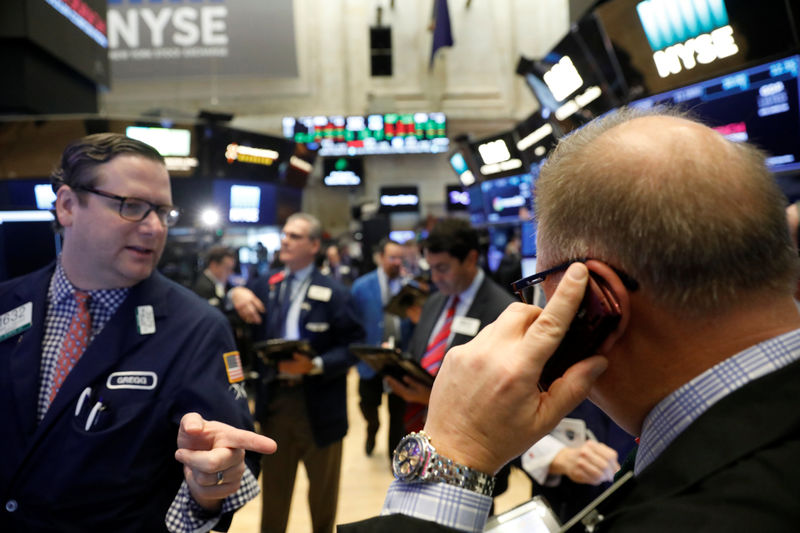By Herbert Lash
NEW YORK (Reuters) - World equity markets climbed on Wednesday as investors shrugged off the latest indication of rising U.S. inflation, while the dollar slipped to a 15-month low against the Japanese yen as strong global growth weighed on the U.S. currency.
U.S. producer prices accelerated in January, according to a Labor Department report that offered further evidence that inflation pressures were building in the world's largest economy.
The report came on the heels of data on Wednesday showing a broad increase in U.S. consumer prices last month.
An index of world stock markets (MIWD00000PUS) advanced 0.8 percent, while major indices in Europe also rose, bolstered by strong results from heavy hitters such as Airbus, the region's largest aerospace firm.
Investors shrugged off fears of rising inflation and higher interest rates, bidding up shares of Apple Inc (NASDAQ:AAPL) after Warren Buffett's Berkshire Hathaway (NYSE:BRKa) made the iPhone maker its top investment.
Network gear maker Cisco also boosted indices on upbeat results and forecast.
Leo Grohowski, chief investment officer at BNY Mellon Wealth Management in New York, said he was encouraged by the reaction to the inflation data, which has overshadowed robust earnings, with about 80 percent of companies beating analysts' estimates.
"In the midst of all the nervousness of the past two weeks, we're winding out a really strong earnings reporting season," Grohowski said. "There were a lot eyes fixating on the PPI number this morning, it came in a little hot. But much like yesterday, the market's shaking it off."
MSCI's all-country world index gained 0.81 percent while the pan-regional FTSEurofirst 300 index (FTEU3) of leading shares in Europe gained 0.36 percent to close provisionally at 1474.26.
The Dow Jones Industrial Average (DJI) rose 80 points, or 0.32 percent, to 24,973.49. The S&P 500 (SPX) gained 10.51 points, or 0.39 percent, to 2,709.14 and the Nasdaq Composite (IXIC) added 51.61 points, or 0.72 percent, to 7,195.23.
Rising interest rates need not be a worry as long as the economy is underpinned by good economic growth, he said.
"The market's growing increasingly comfortable that maybe 3 percent on a 10-year Treasury note is OK," Grohowski said.
The benchmark 10-year U.S. Treasury note (US10YT=RR) rose 7/32 in price to push yields down to 2.8894 percent. Earlier in the session they had shot up to 2.944 percent.
The gap between German and U.S. 10-year borrowing costs reached its widest point since April after the higher-than-expected U.S. inflation data led to a sharp sell-off in U.S. Treasuries earlier in the day.
While investors also shed European government bonds after Wednesday's inflation data, political risks kept a cap on yields.
German 10-year government bond yields (DE10YT=RR) were a basis point higher at 0.76 percent.
The dollar fell across the board. "Forex markets rotate from theme to theme all the time. The theme right now is global growth and strong global growth has historically pushed the dollar lower," said Greg Anderson, global head of FX strategy at BMO Capital Markets in New York. The dollar index (DXY) fell 0.28 percent, with the euro (EUR=) up 0.15 percent to $1.2467. The Japanese yen
Oil slipped below $64 a barrel as record U.S. production and rising inventories outweighed a weak dollar.
U.S. crude output hit a record 10.27 million barrels per day, the Energy Information Administration said on Wednesday, making it a bigger producer than Saudi Arabia. U.S. crude and gasoline inventories rose last week, U.S. data showed.
Brent crude (LCOc1), the global benchmark, fell 35 cents to$64.01. U.S. crude (CLc1) rebounded to gain 19 cent to $60.79.
Gold was on track for its fourth straight session of gains as the dollar skidded to its lowest in two weeks.
Spot gold
